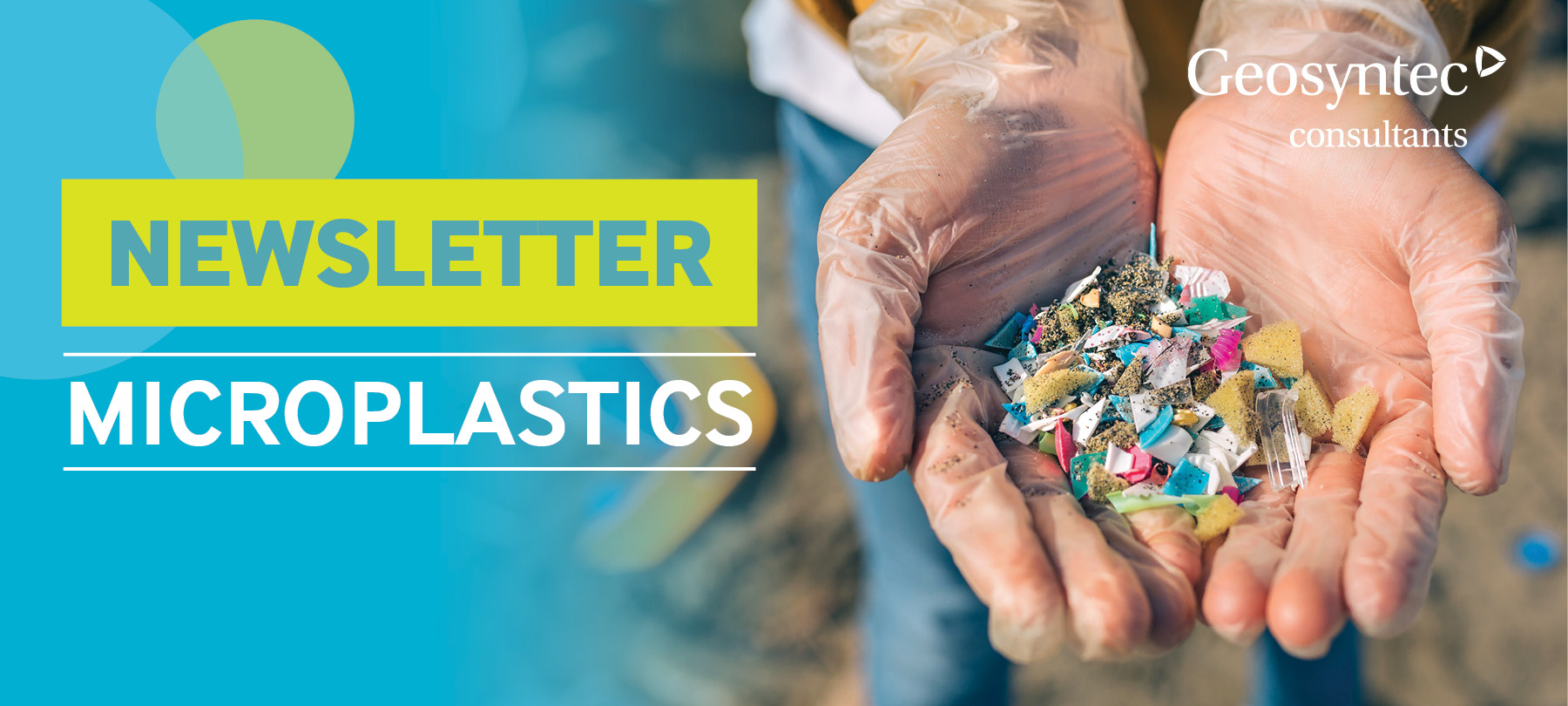Microplastics Newsletter: Q3 2024

European Commission-Funded Research CUSP Presents Initial Findings on Human Health
Since 2021, the European Commission has funded a network called the Research Cluster to Understand the Health Impacts of Micro- and Nanoplastics (CUSP) to improve the understanding of the risks associated with micro- and nanoplastics (MNPs). The five collaborating research projects funded by CUSP have published more than over 50 scientific peer-reviewed research papers and reports, with many research projects still underway. CUSP has recently published an updated policy brief on their key findings to date and highlighting the need for further research.
ITRC has developed a Microplastics Outreach Toolkit
The Interstate Technology Regulatory Council (ITRC) recently released a Microplastics Outreach Toolkit. The 72-page toolkit provides outreach materials for three groups (general audiences, scientists and regulators, and decision makers) and links to other resources including the 2023 ITRC Microplastics Guidance document. Specifically, the toolkit is designed to facilitate engagement with various stakeholders and to provide baseline knowledge about microplastics in the environment.
The U.S. Food and Drug Administration Launches Micro- and Nanoplastics Webpage
The U.S. Food and Drug Administration (FDA) has published a webpage dedicated to providing research on microplastics and nanoplastics in the food supply. The purpose of the webpage is to monitor research and provide scientific information on the health effects of microplastics. The FDA states that concentrations of micro- and nanoplastics in food do not pose a health risk based on their current evaluation of existing scientific evidence.
Regulatory Roundup
U.S. Federal and State
- The National Oceanic and Atmospheric Administration’s Marine Debris Coordination Committee published a report on microfiber pollution, required by the Save Our Seas 2.0 Act. The report provides Congress an overview of microfiber pollution, including current knowledge on sources, pathways, and known impacts. The report also includes recommendations on how Federal agencies can establish partnerships with stakeholders to create solutions for mitigating microfiber pollution into water sources.
- Bill SB 1147 was recently passed in California by the Assembly Health Committee. The bill, if signed into law by the governor, will require all water bottle manufacturers located in California to test for microplastics in source water and provide an annual report to the State Department of Public Health’s Food and Drug branch. This bill would also require the Office of Environmental Health Hazard Assessment to study the health impacts of microplastics in drinking water, including bottled water.
- Senator Jeff Merkley of Oregon introduced the Fighting Fibers Act of 2024 to address microfiber pollution originating from textiles and clothing. The act proposes to mandate microfiber filtration in washing machines and promote research on the environmental impact of microfibers. Senator Merkley, who has been active in addressing plastic pollution, emphasized the need for immediate action to protect human health and the environment.
International
- The European Federation for Cosmetic Ingredients (EFfCI) has released guidance on what types of substances and/or materials will be restricted within the European Union (EU) Cosmetic Industry. The guidance document defines the types of polymers included in the ban and/or restrictions and how to determine if a polymer used in a product is included. With this guidance, companies can identify if their respective cosmetic products are to be restricted or banned.
Litigation
- A U.S. District Judge dismissed a lawsuit filed against a bottled water company which alleged that one of their bottled water brands is not “100% natural spring water” because the water contains microplastics, therefore violating Illinois’ consumer fraud law. The judge ruled that the Federal Drug Administration defines spring water, and this definition is not contingent upon the presence of microplastics.
- Class action lawsuits have been filed in California federal court against two baby bottle manufacturers (Defendant 1; Defendant 2) accusing them of failing to warn parents that their plastic baby bottles leach microplastics when heated. The lawsuits claim that the companies knew their polypropylene bottles and cups could release microplastics that may harm infants' digestive, reproductive, and immune systems. The companies' marketing of their products as "BPA free" is alleged to be misleading, giving a false sense of security to consumers. The plaintiffs, seeking damages and an injunction, represent California and nationwide purchasers of the products.
